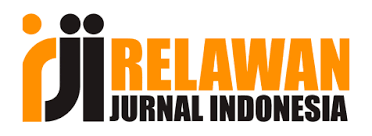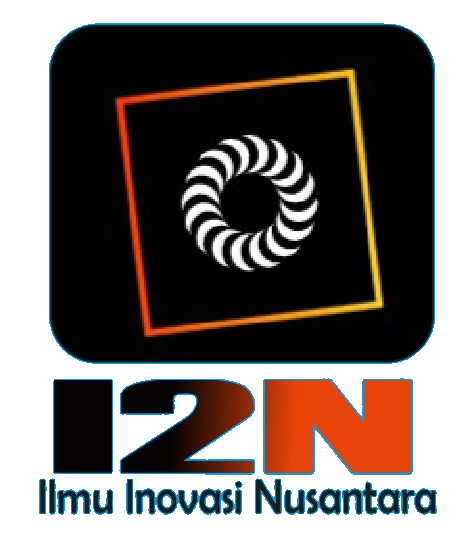Potential Income of Palm Oil Farmers in Financing Higher Education at Jambi University
DOI:
https://doi.org/10.58557/(ijeh).v5i3.344Kata Kunci:
Income Potential, Palm Oil Farming, Financing Higher EducationAbstrak
This study aims to analyze the income potential of oil palm farmers in financing higher education at Jambi University, addressing the rising educational costs that burden farmer families. Using a descriptive quantitative method, data were collected through questionnaires from 30 oil palm farmers meeting specific criteria. The analysis employed descriptive statistics to examine income and expenditure patterns. Results showed that the average household income was IDR 6,838,083.33, with expenditures of IDR 2,695,366.63. The income generated from oil palm farming alone has the potential to exceed educational funding needs, with a potential income ratio (PP) of 1.09 for oil palm farming and 1.67 when combined with other sources. While most farmers demonstrate strong income potential, some with lower incomes require additional support. The combined income from oil palm and non-oil palm activities offers a better opportunity for financing education. Relying solely on oil palm income could limit financial stability. This research contributes insights into how farmers' income levels relate to their capacity to fund education and suggests policy recommendations to enhance access to higher education for farmers' children, fostering social and economic development in the area
Referensi
Abdullah, I., & Gani, M. I. A. (2022). Analisis Faktor Penyebab Kurangnya Minat Remaja Terhadap Pendidikan Perguruan Tinggi. Cetta: Jurnal Ilmu Pendidikan, 5(2), 128–137. https://doi.org/10.37329/cetta.v5i2.1486
Ayompe, L. M., Schaafsma, M., & Egoh, B. N. (2021). Towards sustainable palm oil production: The positive and negative impacts on ecosystem services and human wellbeing. Journal of Cleaner Production, 278, 123914. https://doi.org/10.1016/j.jclepro.2020.123914
Baker, B. D., & Knight, D. (2025). Does money matter in education? Albert Shanker Institute.
Djibran, Moh. M., Andiani, P., Nurhasanah, D. P., & Mokoginta, M. M. (2023). Analisis Pengembangan Model Pertanian Berkelanjutan yang Memperhatikan Aspek Sosial dan Ekonomi di Jawa Tengah. Jurnal Multidisiplin West Science, 2(10), 847–857. https://doi.org/10.58812/jmws.v2i10.703
Guntoro, D. W., & Sholekhah, I. (2023). SES (Socio-Economis Status) dalam Pengambilan Keputusan Melanjutkan Pendidikan Tinggi di Provinsi Kalimantan Tengah. Neraca: Jurnal Pendidikan Ekonomi, 9(1), 48–54. https://doi.org/10.33084/neraca.v9i1.5787
Hansen, B. G. (2014). Financial extension that challenges farmers’ thinking in discussion clubs helps farmers improve their problem solving abilities. Agricultural Systems. https://doi.org/10.1016/j.agsy.2014.09.009
Hilkens, A., Reid, J. I., Klerkx, L., & Gray, D. I. (2018). Money talk: How relations between farmers and advisors around fi nancial management are shaped. Journal of Rural Studies, 63(September), 83–95. https://doi.org/10.1016/j.jrurstud.2018.09.002
Iba, Z., & Wardhana, A. (2021). Populasi dan Sampel. In Metode Penelitian Pendekatan Kuantitatif (Vol. 14, Issue 1).
Inga, Ž., & Pereira, P. (2021). Geography and Sustainability Higher Education For Sustainability: A Global Perspective. Geography and Sustainability, 2, 99–106. https://doi.org/10.1016/j.geosus.2021.05.001
Kharisma, N., & Latifah, L. (2015). Pengaruh Motivasi, Prestasi Belajar, Status Sosial Ekonomi Orang Tua Dan Lingkungan Teman Sebaya Terhadap Minat Melanjutkan Pendidikan Ke Perguruan Tinggi Pada Siswa Kelas Xii Kompetensi Keahlian Akuntansi Di Smk Negeri Se-Kota Semarang Tahun Ajaran 2014/. Economic Education Analysis Journal, 4(3), 833–846.
Kuswanto. (2019). Analysis of rubber farmer welfare in Jambi Province, Indonesia. Russian Journal of Agricultural and Socio-Economic Sciences, 86(2), 86–93. https://doi.org/10.18551/rjoas.2019-02.12
Kuswanto, K., Zulkifli, A., Armandelis, A., & Zulfanetty, Z. (2019). The Impact of the Efficiency of Rubber Production on the Welfare of Rubber Farmers in Jambi Province. International Journal of Economics and Financial Issues, 9(2), 80–86. https://doi.org/10.32479/ijefi.7503
Lase, I. P. S. (2020). Pengaruh Tingkat Pendapatan Orang Tua, Tingkat Pendidikan Orang Tua, Lingkungan Teman Sebaya Dan Efikasi Diri Terhadap Minat Siswa Untuk Melanjutkan Keperguruan Tinggi Smk Kabupaten Nias. Jurnal Education and Development, 8(2), 261–264.
Leavy, J., & Hossain, N. (2014). Who Wants to Farm? Youth Aspirations, Opportunities and Rising Food Prices. In IDS Working Papers (Vol. 2014, Issue 439). https://doi.org/10.1111/j.2040-0209.2014.00439.x
Liao, L., Du, M., Wang, B., & Yu, Y. (2019). The Impact of Educational Investment on Sustainable Economic Growth in Guangdong , China: A Cointegration and Causality Analysis. Sustainability, 11(3), 766. https://doi.org/10.3390/su11030766
Mufida, A., & Effendi, Z. M. (2019). Pengaruh Pendapatan Orang Tua dan Prestasi Belajar Terhadap Minat Melanjutkan Pendidikan ke Perguruan Tinggi Pada Siswa Kelas XII Akuntansi SMK Negeri 2 Pariaman. Jurnal Ecogen, 2(4), 687. https://doi.org/10.24036/jmpe.v2i4.7846
Murdy, S., & Kuswanto. (2021). Analysis of Profit Maximization of Areca Farming in Jambi Province, Indonesia. International Journal of Management Studies and Social Science Research Analysis, 3(5), 51–59.
Navickas, M., & Gudaitis, T. (2014). Influence of financial literacy on management of personal finances in a young household. Business: Theory and Practice, 15(1), 32–40. https://doi.org/10.3846/btp.2014.04
Ngan, S. L., Er, A. C., Yatim, P., How, B. S., & Lim, C. H. (2022). Social Sustainability of Palm Oil Industry: A Review. Frontiers in Sustainability, 3(May), 1–16. https://doi.org/10.3389/frsus.2022.855551
Panda, S. (2015). Farmer education and household agricultural income in rural India. International Journal of Social Economics, 42(6), 514–529. https://doi.org/10.1108/IJSE-12-2013-0278
Pindyck, R. S., & Rubinfeld, daniel l. (2018). Microeconomics 9th Edition (Textbook). Pearson Education.
Pratiwi, D. A., Maryam, S., & Balkis, S. (2019). Analisis Pendapatan Usahatani Kelapa Sawit (Elaeis Guineensis Jacq.) di Kecamatan Waru Kabupaten Penajam Paser Utara. Jurnal Agribisnis Dan Komunikasi Pertanian, 3(1), 9. https://doi.org/10.35941/jakp.3.1.2020.2855.9-16
Sholeh, M. S., Mublihatin, L., Laila, N., & Maimunah, S. (2021). Kontribusi pendapatan usahatani terhadap ekonomi rumah tangga petani di daerah pedesaan: Review. Agromix, 12(1), 55–61. https://doi.org/10.35891/agx.v12i1.2330
Sjahza, A., & Asmit, B. (2019). Regional economic empowerment through oil palm economic institutional development. Management of Environmental Quality: An International Journal, 30(6), 1256–1278. https://doi.org/10.1108/MEQ-02-2018-0036
Widiawati, R., Nabilah, F., Qudsi, I., & Mardikaningsih, R. (2024). Sosialisasi Beasiswa Kampus: Upaya Memperluas Akses dan Kesempatan Bagi Mahasiswa Berprestasi Campus Scholarship Socialization: Efforts to Expand Access and Opportunities for Achieving Students. 4, 56–68.
Yustiyawan, R. H. (2019). Penguatan Manajemen Pendidikan Dalam Mutu Pendidikan Tinggi Studi Kasus di STIE IBMT Surabaya. Jurnal Dinamika Manajemen Pendidikan, 4(1), 1. https://doi.org/10.26740/jdmp.v4n1.p1-10
Unduhan
Diterbitkan
Cara Mengutip
Terbitan
Bagian
Lisensi
Hak Cipta (c) 2025 Ratna Tiara Sani, Kuswanto Kuswanto, Sahara Sahara

Artikel ini berlisensiCreative Commons Attribution-ShareAlike 4.0 International License.














